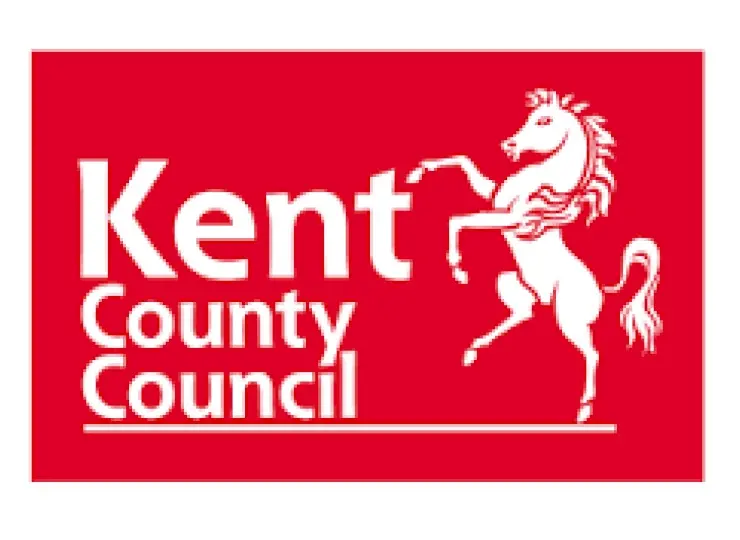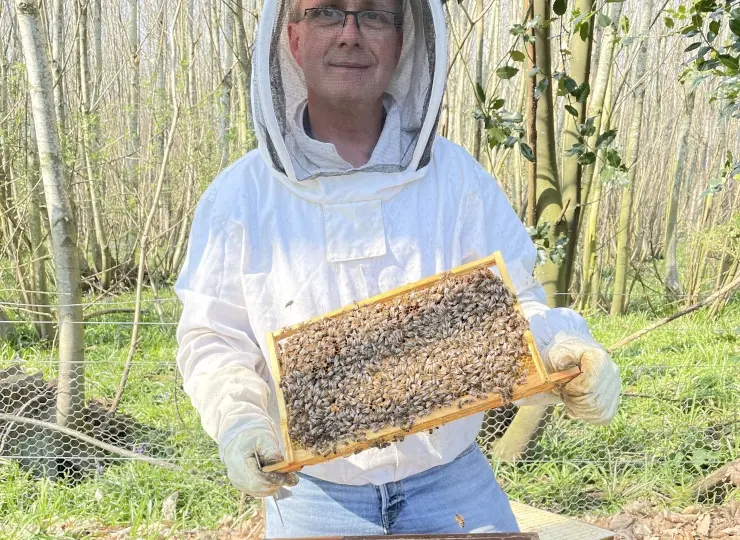
What powers Solar Gates UK, apart from the obvious?
The leading manufacturer and installer of solar hybrid barriers and gates based out of Boughton Monchelsea near Maidstone is proud of its products, which are now saving lives and carbon on highways and railways across the globe.
Founding Director Neil Sampson shines a light on Solar Gates UK and its business innovations that have been possible in no small part thanks to the support of the Kent and Medway Business Fund (KMBF).
Since the scheme began in 2012, it has helped 384 companies, 3,700 jobs have been created as a result, 1,400 jobs protected and in total £68m has been awarded.
Neil said: “The assistance from KMBF in the first place, back in 2017, gave us our first break. The banks had said no and I didn’t have any money myself. KMBF gave us a chance, and what felt like an awful lot of money at the time, which allowed us to invoke that creativity, give us some breathing space from wondering where the next penny was coming from, and make a difference.”
There are five things that make Solar Gates stand out from the crowd, as Neil explains:
At Solar Gates a third of our staff are ex-addicts or ex-offenders
Having been given the opportunity to grow by KMBF, it was important to Neil to put something back to society in return.
He says: “It has been a natural evolution. Because we are focused on finding the best person for the job, some came with a backstory. We had a chat with a local prison and technically it is slightly harder than whacking an advert in the paper. You have to consider police checks and vetting and needing to adhere to license conditions. But the benefits when it works are loyalty and retention, which far outweigh what you might usually expect.
“There are some 50,000 people a year leaving prison, with perhaps a fifth of those ready for work. There is an employment crisis, and this is an untapped resource. The block is perception and policies and protocols.
“We had been living hand to mouth as a business, but the KMBF loan gave us some financial breathing space which allowed some creativity to bubble up. That included product innovation and committing to working with former prisoners and offenders, and that works both ways.
“I was looking at it from one angle; I need a good employee, I’ve got a good employee and that’s great. To hear one staff member say she was contemplating taking her own life on release and then she moved from ‘merely surviving to thriving’ simply because of a job that led to relocation and a new life, that makes a difference. She also went on to receive a Highways Heroes award."
“I thought this would be great fun five years ago. I went on a course, bought some equipment and a load of bees and two queens. You tip them into the hives, they made themselves at home and decided to stay. Two hives then became six at the back of our building and we then started to harvest the honey and give it away at shows and to clients.
“My accountant had previously questioned the hives and suits and gloves on invoices and whether they should be personal expenses. I said no! National Highways invited us to be a part of its ‘Raising The Bar’ health and safety initiative just because of a jar of honey.
“I saw the director of National Highways walking past our stand at a show. I’d never met him but knew what he looked like. I jumped out and offered him the honey rather than the pens, carrier bags and fluffy bugs he already been given. We got chatting. He’d not heard of us, but he looked at our products, acknowledged they were saving lives and carbon and wanted us involved.
“That National Highways contract was an added bonus of bee keeping. There are other benefits too. When I am with the hives, surrounded by half a million bees, I do get some solitude as it’s the only place where no one follows me to talk to me! And the honey, the result of the surrounding apple, cherry and pear orchards, is delicious.

The solar powered red and white striped INSTABOOM GS6 is specially designed to protect against overhead strikes in work zones The INSTABOOM GS6 barrier is specially designed to protect against overhead strikes in work zones.
We have created two new products in the last 12 months that are saving carbon and lives on the UK highways network.
“Most innovations come from taking notice of random comments. The product that won the National Highways Safety Initiative of the Year 2019 came about just after our second KMBF loan, following a chat with Kier Highways on the M20 junction 6 depot who was talking about the limitations of the Government-standard height protection – the poles with bunting, you’ve all seen them. If I’ve got a digger on the back of an articulated lorry 30ft behind my cab, I’m not going to notice I have snapped a piece of bunting. We went back to him within two weeks with a patented product that was a relatively simple iteration of known parts to do a different job, just no one had ever thought about it before and INSTABOOM GS6 was born.
“More recently, we noticed we were constantly delivering our barriers to little Portakabin site offices. Our lead engineer, Dave, said ‘why don’t we combine the two?’. A genius idea. I gave him a budget and a deadline and six weeks later he came back with a site office with a built-in barrier and light and charging ports for phones and laptops, all running on solar power, and that has become a real quick seller for us. And the INSTABOOM Site was born.
We've got customers in New Zealand, Norway and Sweden - and watch this space!
“We’ve been working with New Zealand for about 18 months now, since we developed lighter, more portable products. Our original products were big and weighed half a tonne and it was not very practical nor carbon friendly to ship them around the world. Now we have, for example, our INSTABOOM Go automatic stop/go board which fits into a compact carry case on wheels.
“And we are taking them to markets where there have been the same problems as we have in the UK. For the stop/go boards, maybe someone does not turn up for work in the morning. If you haven’t got someone to hold the board and a radio, you can’t fix the water main that day. It’s also a pretty grotty job, standing in the road and making people stop.
“In Australia last year, six stop/go workers were shot at. And in Norway, three were run over and killed. They use a flag system there and, because roadworks occur during the summer months, it is usually a student in that role.
“We have been invited by the Indiana Department of Transportation in America to take part in a research project. They use huge trailer-mounted flagging systems at the moment. When they saw our one-man portable tiny unit, they said there was nothing like it in the US.
"It’s seeing a problem, hearing where jobs are being delayed and coming up with the solution."
We fundamentally try to make sure everything we do runs in a green way and has a good carbon lifecycle.
“We either have fully solar products or if, it is a battery swappable device, we are making sure the swap is for as long as possible. Traffic lights on roadworks often need a battery every week. If we can double or triple that, then it’s less driving, less personnel hours and less carbon consumed in the process.
“We work with sustainable suppliers. We can’t hide from the plastic, oil derivative, lead acid and steel that unfortunately do feature in our industry and have a big carbon footprint. But we are working hard to ensure recycling features as much as possible.
“Older models are repurposed and repairable, we have a hire fleet of equipment and, when solar devices are in for refurb, we plug them into our grid and generate electricity from them as they’re parked out the front waiting to be worked on and again before they go back out to site.
“We’re looking at what products can be made from. We have a barrier that is made from bamboo and cotton. This can be something that gets slung in a ditch at the end of a job. If that happens, at least ours will rot away over time.”
“We are very real people who have a real life that goes on outside of work. No one is going to say on their deathbed ‘I wish I had gone to work a bit more’. We’re mindful we’ve got to work together and get on and, once the day is finished, we continue to support one another to make sure every part of life is valuable.
“Having that mindset around the team allows us all to fit, no matter where we come from, and look forward at what we are doing and doing it together.”